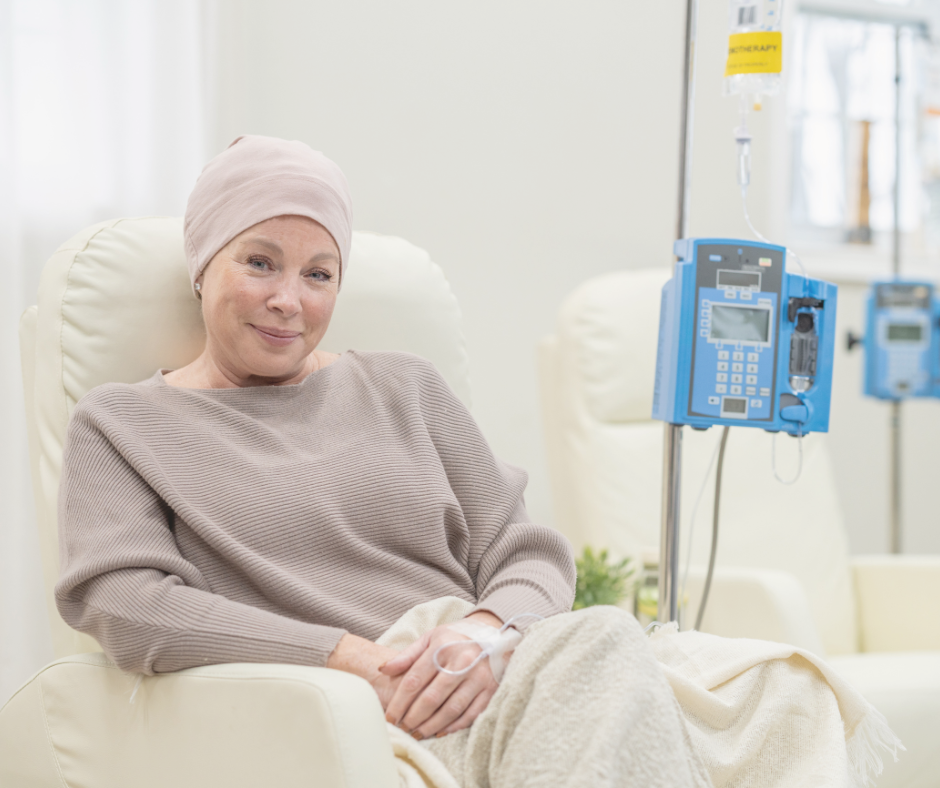The Role of Fasting in Conjunction with Your Cancer Treatments: Reducing Side Effects and Boosting Efficacy
Fasting has gained significant attention in recent years for its potential to enhance cancer treatment, particularly chemotherapy and radiation therapy. At Cincinnati Integrative Oncology and Functional Medicine (CIOFM), we explore holistic approaches to health, including the strategic use of fasting. Here's how fasting can help reduce the side effects of chemotherapy and improve its efficacy.
How Fasting Can Boost Chemotherapy and Lessen Side Effects!
Protecting Healthy Cells
One of the main benefits of fasting during chemotherapy is that it helps protect your healthy cells. When you fast, your body produces ketone bodies that provide energy and make healthy cells more resilient. This also boosts levels of glutathione in your normal cells, a powerful antioxidant that protects cells from the harmful effects of chemotherapy and radiation therapy.
More Resilient Cells: Ketones help healthy cells function better and make them less likely to be damaged by chemotherapy.
Higher Antioxidant Levels: More glutathione means your healthy cells are better protected from the toxicity of chemotherapy.
Weakening Cancer Cells
On the flip side, cancer cells struggle when you fast. They depend on glucose for energy and aren’t typically as good at using ketones. This makes it harder for them to survive, which makes them more vulnerable to chemotherapy.
Less Repair Capability: Cancer cells can’t produce as much glutathione without glucose, so they’re less able to repair themselves. This may allow for synergistic killing of your cancer cells!
More Vulnerable: With reduced repair capabilities, cancer cells become more susceptible to the cytotoxic (killing) effects of your anticancer treatments- chemotherapy and/or radiation therapy.
Why Fasting During Chemotherapy is Beneficial
Enhanced Treatment Effectiveness
Fasting can make chemotherapy more effective by making cancer cells more sensitive to treatment. Without glucose, cancer cells can’t produce as much glutathione, making them more susceptible to chemotherapy.
Better Drug Performance: Cancer cells respond better to chemotherapy, potentially allowing for lower doses while still getting great results.
Targeted Action: Healthy cells are protected, and cancer cells are weakened, making chemotherapy more precise and effective.
Reduced Side Effects
Chemotherapy often comes with tough side effects like nausea, fatigue, and a weakened immune system. Fasting can help lessen these side effects, making the treatment easier to handle.
Lower Toxicity: Increased glutathione levels in healthy cells help reduce the overall toxicity of chemotherapy.
Better Recovery: Patients who fast during chemotherapy often report feeling more energetic and experiencing less nausea, leading to a quicker recovery.
For more information, see this article from the International Journal of Molecular Sciences, “How Far Are We From Prescribing Fasting as Anti-Cancer Medicine?”
How to Fast Safely During Chemotherapy
Before you start any fasting regimen, it’s crucial to talk to your healthcare provider to ensure it’s safe and suitable for you. Here are some tips for incorporating fasting into your chemotherapy plan:
Stay Hydrated: Drink lots of filtered water, preferably with a reverse osmosis unit and herbal teas. To keep hydrated, you might need to add electrolytes, such as a few grains of Celtic sea salt, to each drink.
Listen to Your Body: If you feel dizzy or unwell, consult your dietitian or doctor. Adjust your hydration or nutrient intake as needed.
Take It Slow: Start with shorter fasts and gradually increase the duration as your body gets used to it.
Eat Well When Not Fasting: During non-fasting periods, focus on a nutrient-dense, low-carb, anti-cancer diet to support your health.
Fasting can be a promising way to enhance chemotherapy by reducing side effects and improving the treatment’s effectiveness. By protecting healthy cells and weakening cancer cells, fasting can make chemotherapy more effective and easier to tolerate. Always approach fasting with careful planning and medical guidance to ensure it supports your unique health needs effectively. It is important for you to discuss fasting types with your doctor and how to safely integrate this powerful treatment in your anti-cancer plan.
This article is for educational purposes only and is not intended to diagnose, treat, or mitigate disease. It may include non-FDA-approved treatments or alternate indications. Please consult your healthcare professional for formal recommendations in your particular case.



